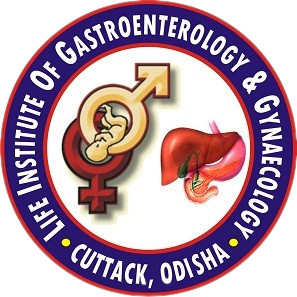Enterocolitis is a medical condition that impacts the intestines, often causing discomfort and disruption in daily life. Enterocolitis symptoms can range from mild to severe, making early detection crucial. Recognizing these symptoms helps manage the condition better and can prevent complications that require more intensive care.
This guide aims to simplify enterocolitis symptoms for easier understanding and busts common myths often associated with it. By doing so, it helps individuals get the right information they need to make informed health decisions. Our goal is to make complex medical terms easy to understand, so you feel empowered about your health choices.
Understanding Enterocolitis and Its Variants
Enterocolitis is basically inflammation of both the small intestine and colon. There are several types, including hemorrhagic enterocolitis, where bleeding in the intestines occurs. The primary enterocolitis symptoms include inflammation caused mostly by bacterial infections.
Typical culprits can be bacteria like E. coli and others leading to food poisoning. Certain factors can increase the risk: a suppressed immune system, recent antibiotic use, or traveling to areas with poor hygiene. Different age groups, including young children and elderly, may be more vulnerable. Knowing these risk factors can help you be more vigilant and proactive in addressing symptoms early.
Recognizing Symptoms and When They Signal Danger
To effectively manage enterocolitis, it’s vital to recognize its symptoms. The primary enterocolitis symptoms to watch out for include:
- Persistent abdominal pain
- Diarrhea, often with blood
- Ongoing nausea
- Fever
These symptoms serve as primary indicators. But, be on the lookout for others that signal worsening conditions:
- Vomiting
- Fatigue
- Loss of appetite
When any of these symptoms show up, they shouldn’t be brushed off. If they become severe or don’t improve, you must see a doctor immediately.
Enterocolitis symptoms can start as minor discomfort but escalate quickly. Identify changes in bowel habits or if you feel persistently tired. These might point to more severe complications. Early medical intervention can stop the condition from getting worse, so don’t hesitate to seek help.
Effective Diagnosis and Treatment Options
When dealing with enterocolitis symptoms, proper diagnosis is key. Usually, a diagnosis involves a series of tests and questions to get a full picture of the health issue. Physicians may recommend blood tests or stool tests to identify the cause of the symptoms.
If you’re visiting a doctor, it helps to note any recent travel, dietary changes, or medication use. This information provides crucial context for the physician to make an accurate diagnosis. Once identified, treating enterocolitis symptoms varies, including medications that may include antibiotics to fight bacterial infections. In some cases, hydration is crucial since diarrhea and vomiting can lead to dehydration.
Maintaining a balanced diet also plays a pivotal role in treatment. A light, low-fiber diet may be recommended initially to ease the digestive system. Myths surround the treatment, such as outdated home remedies that don’t provide effective relief and can sometimes worsen the condition.
Recent advancements in enterocolitis care involve newer medications that target specific bacteria. Immune-specific treatments are also in the pipeline, aiming to offer relief with fewer side effects.
Prevention with Hygiene and Lifestyle Modifications
Preventing enterocolitis symptoms often hinges on good hygiene practices. Proper handwashing and cleaning foods before cooking play a significant role in reducing infection risks. Moreover, dietary changes can help prevent enterocolitis symptoms from appearing in the first place.

Include high-fiber foods and probiotics to support healthy digestion. Reduce processed foods and excess sugar, which can disturb gut health. Simple lifestyle changes, like regular exercise and staying hydrated, can help fortify the body against potential infections. Additionally, keep an eye out for preventive screenings, especially if you fall into a high-risk category because of age or existing health conditions.
Navigating Life with Enterocolitis
Living with enterocolitis can be challenging but manageable with the right knowledge. By understanding and managing enterocolitis symptoms, life can be more comfortable. During flare-ups, stick to a diet that won’t irritate your intestines.
Networking with support groups provides emotional and practical support. These communities offer valuable strategies to handle both daily and long-term challenges.
Education and awareness form crucial components in dealing with this condition. The more informed everyone is, the better the overall management of enterocolitis symptoms will be, improving quality of life for those affected.
In conclusion, understanding the intricacies of enterocolitis symptoms empowers individuals and their families to act wisely, maintaining overall gut health and well-being.

